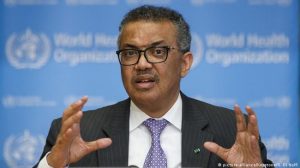The European Union (EU) has allocated an additional €10 million (equivalent to 800 million Afghani) to improve mental health and address drug use disorders in Afghanistan.

This additional EU funding will ensure that the World Health Organisation (WHO) and the United Nations Office on Drugs and Crime (UNODC) can widen access to mental health support and drug abuse treatment and rehabilitation services for vulnerable populations in Afghanistan, including women and girls.
“The EU feels very strongly about improving the health and well-being of the people in Afghanistan,” affirmed Raffaella Iodice, EU Chargée d’Affaires a.i. to Afghanistan. “It is important that those persons who struggle with mental health and drug use disorders have access to comprehensive health services and that they are helped to reintegrate into society. That is why the EU has decided to increase our funding to our partners WHO and UNODC. With this additional funding, more people in need will be reached.”
“The EU’s support is essential in facilitating access to mental health support and drug abuse treatment and rehabilitation services for vulnerable populations in Afghanistan,” emphasised Luo Dapeng, WHO Representative in Afghanistan. “This additional €10 million in funding will significantly enhance our endeavours to tackle the existing mental health and drug use disorder challenges among these populations, thereby enabling us to deliver the requisite care and support they rightfully deserve.”
Afghanistan has nearly 4 million drug users – roughly 10% of the population. The worsening drug crisis has left most of the country’s drug treatment and rehabilitation centres struggling to cope, and drug users without access to treatment.
“The additional funding is crucial in addressing drug use and its related disorders in Afghanistan by increasing access to integrated, evidence-based and human rights-oriented drug treatment and rehabilitation services,” said Anubha Sood, UNODC Representative in Afghanistan.
The initial funding provided by the EU in 2022 played a pivotal role in strengthening mental health and drug use disorder services in Afghanistan. Through cooperation with WHO and UNODC, initiatives helped to enhance the quality and availability of these crucial services.
For example, the EU-funded project has been instrumental in supporting the renovation and establishment of several drug addiction centres across the country. Additionally, health workers throughout Afghanistan have undergone comprehensive trainings in mental health and drug disorders management, equipping them with the essential knowledge and skills to provide effective care and support to individuals in need.
